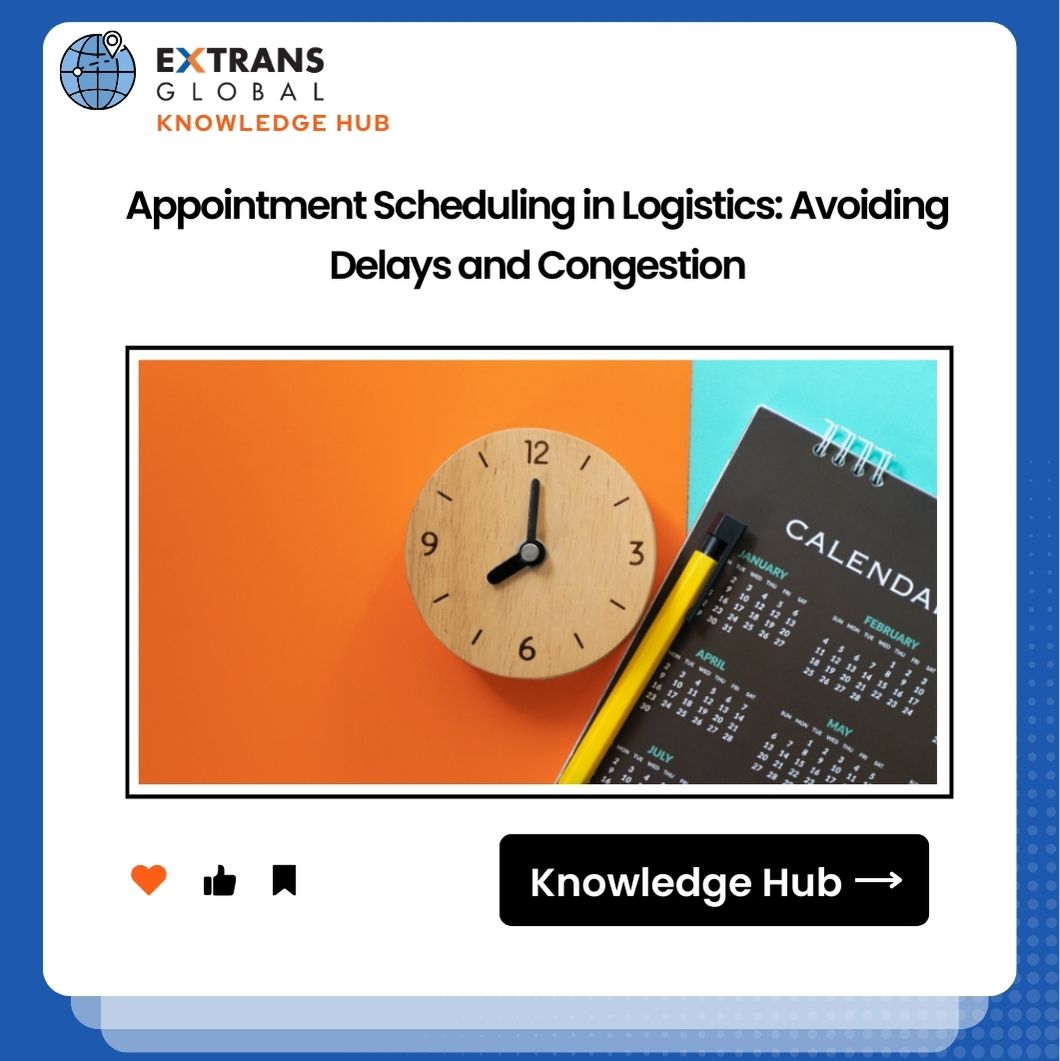Appointment Scheduling in Logistics: Avoiding Delays and Congestion

Appointment scheduling plays a critical role in efficient logistics operations. Here are some key reasons why it is important:
-
Time Management:
- Appointment scheduling allows logistics providers to plan and manage their resources (vehicles, personnel, etc.) more effectively.
- It helps ensure timely pickup and delivery of goods by coordinating arrival and departure times at various stops.
- This reduces delays and improves overall productivity.
-
Capacity Optimization:
- Appointment scheduling enables logistics companies to better utilize their transportation capacity.
- It allows them to group and sequence pickups and deliveries in an optimal manner, reducing empty miles and improving asset utilization.
- This translates to cost savings and higher profitability.
-
Customer Experience:
- Appointment scheduling provides customers with a clear timeline for their shipments.
- It sets proper expectations and improves transparency, leading to higher customer satisfaction.
- Customers can plan their own operations based on the scheduled delivery times.
-
Dock Management:
- In facilities like warehouses and distribution centers, appointment scheduling helps manage the flow of inbound and outbound trucks.
- It prevents congestion at loading docks and ensures efficient unloading/loading processes.
- This minimizes detention time and demurrage charges.
-
Route Optimization:
- Appointment scheduling data can be used to plan optimal routes for vehicles.
- It considers factors like traffic patterns, distance, and time windows to create the most efficient delivery routes.
- This reduces fuel consumption, labor costs, and environmental impact.
-
Visibility and Reporting:
- Appointment schedules provide valuable data for logistics analytics and performance monitoring.
- This information can be used to identify bottlenecks, forecast demand, and make data-driven decisions.

Appointment scheduling can significantly improve efficiency and reduce delays and congestion in various settings. Here are some key ways in which appointment scheduling achieves these benefits:
-
Reducing Queueing and Waiting Times:
- Appointment scheduling allows organizations to manage the inflow of customers or clients, ensuring that there are no overbookings or large crowds waiting to be served.
- By allocating specific time slots for each individual or group, the waiting time is minimized, and the flow of people is more controlled.
-
Improved Resource Utilization:
- Appointment scheduling enables better management of resources, such as staff, equipment, or facilities.
- By having a predetermined schedule, organizations can ensure that resources are efficiently utilized and not left idle or overbooked.
- This leads to a more optimal use of available resources, reducing waste and improving overall productivity.
-
Reduced Congestion and Crowding:
- Appointment scheduling helps to avoid situations where large numbers of people arrive at the same time, leading to overcrowding and congestion.
- By spreading out the demand over a scheduled period, organizations can maintain a steady flow of individuals or groups, preventing bottlenecks and ensuring a more comfortable and organized environment.
-
Enhanced Customer/Client Experience:
- Appointment scheduling provides a more predictable and reliable experience for customers or clients.
- Knowing their scheduled time slot, individuals can better plan their day and arrive at the right time, reducing frustration and improving satisfaction.
- This can lead to increased customer loyalty and a stronger reputation for the organization.
-
Improved Coordination and Workflow:
- Appointment scheduling helps to synchronize various activities and departments within an organization.
- By having a centralized schedule, different teams or functions can better coordinate their efforts, leading to a more streamlined workflow and reduced delays.
- This integration of processes and communication can enhance overall efficiency and productivity.
-
Data-Driven Decision Making:
- Appointment scheduling systems often collect valuable data on usage patterns, no-shows, and other metrics.
- This data can be analyzed to identify trends, optimize scheduling practices, and make informed decisions to further improve efficiency and reduce delays.
Appointment scheduling is a powerful tool that can significantly enhance the overall efficiency of an organization, whether it is a healthcare facility, a service-based business, or any other setting where managing the flow of people is crucial. By leveraging the benefits of appointment scheduling, organizations can minimize delays, reduce congestion, and provide a better experience for their customers or clients.

top



